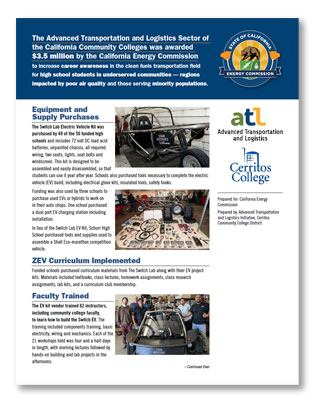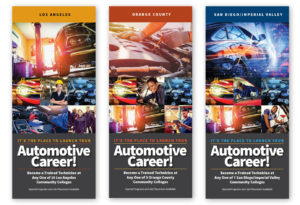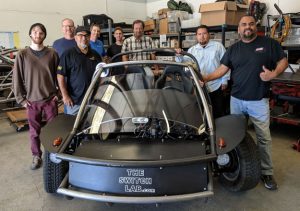
Coultas (left, rear) and instructor participants stand with the completed Switch Vehicle built during the October 2018 training.
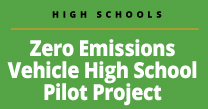
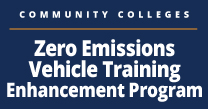 Victor Valley College Supports Two Newly Funded High Schools
Victor Valley College Supports Two Newly Funded High Schools
While the Clean Fuels Transportation Pilot Project funded by the California Energy Commission provides high schools with funding for equipment, curriculum and training, there is also an important role for community college partners. In the Inland Empire/Desert region, Victor Valley College has the opportunity to support two newly funded high schools, Adelanto High School and Victor Valley High School.
Victor Valley has strong ties with all nine of its feeder high schools, which produce about 25 percent of enrollments in its automotive programs. Automotive Instructor Steven Coultas took over outreach efforts three years ago and is working to increase that number through several recruitment and engagement strategies.
Coultas visits each feeder high school at least once per year, where he observes instructors and meets with teachers and students one-on-one. Coultas is sympathetic to some of the challenges high schools face in keeping their curriculum and equipment in line with industry standards and said Victor Valley helps in whatever ways it can.
“We let them know that they can borrow one of our alternative propulsion vehicles to check out, Coultas said. Our partnership is pretty much unlimited; we’ll offer them anything we can to help them.”
The automotive program at Victor Valley is more than double the size of what it was five years ago, including more faculty and state-of-the-art equipment.
Victor Valley was able to purchase several new pieces of equipment including a hybrid engine performance trainer, fuel cell energy box and other specialized tools and diagnostic equipment with grant funds from the Energy Commission last year. Coultas emphasizes that during his high school visits, along with the financial benefits of attending community college.
“Our program is one-tenth the cost of the private schools in the area, and it doesn’t require commuting or relocation,” Coultas said. “I always tell students that it makes the bank of mom and dad much happier.”
Victor Valley’s equipment and facilities on display last fall when the college hosted an automotive competition for high school students. Six of the feeder high schools participated, and about 80 students attended.
Students completed hands-on activities like compression tests and tire rotations. One student from each school won a diagnostic scanner, and each participating school received a larger version of the scanner.
“It gets them excited about what they need to do to prep for next year,” Coultas said. “If students are interested, they are taking the first step that will launch them into a career.”
Over the summer, Coultas visited The Switch Lab in Sebastopol for a week-long training session on the Switch electric vehicle kit. Both Adelanto High and Victor Valley High have purchased the kits for use in their automotive classes. Coultas said he was skeptical at first, but left the training feeling good about the benefits the vehicle can bring to Victor Valley.
“I must have walked by it a dozen times and was not sure it would serve our program well,” Coultas said. “But we built it from scratch in a week at training and it is definitely something that we’ll use for our electric car class.”
The knowledge Coultas gained at the training will help him better support both the teachers and students at Adelanto and Victor Valley High Schools.


